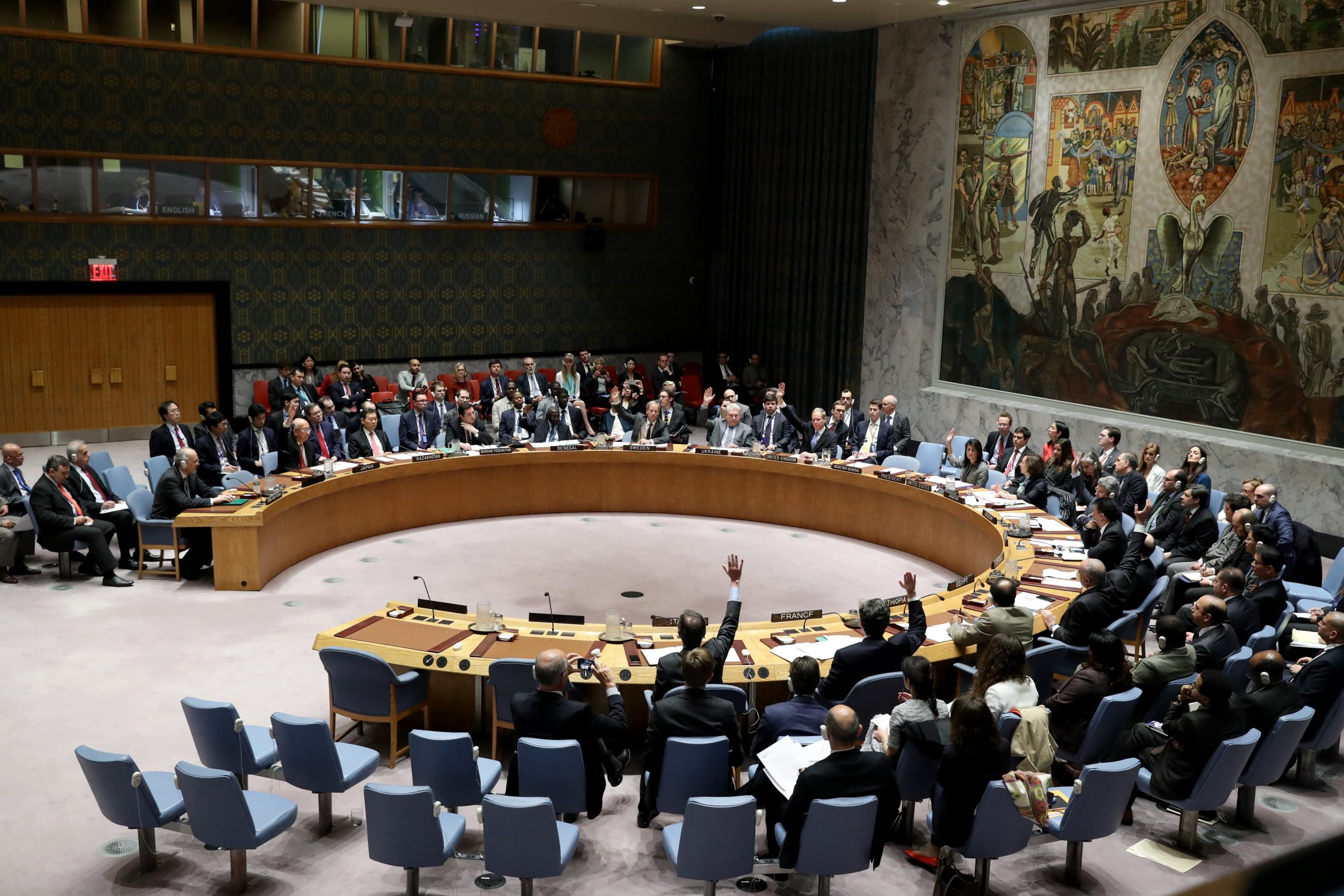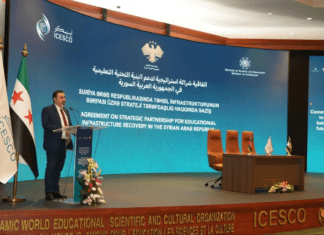
The UN Security Council convened an emergency meeting on Monday to address the rapidly evolving situation in Syria following the ouster of the dictator Bashar al-Assad and the revolution’s capture of Damascus. The closed-door session, led by the US, focused on ensuring Syria’s stability during the transitional phase and safeguarding its territorial integrity.
Diplomats emerged from the session with a shared emphasis on Syria’s unity, the protection of civilians, and access to humanitarian aid. Russian Ambassador Vassily Nebenzia acknowledged the unexpected nature of Assad’s fall and called for a “cautious approach” to “monitor developments.”
“I think the Security Council was fairly united on the need to preserve the territorial integrity and unity of Syria, to ensure the protection of civilians, and to ensure humanitarian access to the population in need,” Nebenzia said.
US Deputy Ambassador to the UN Robert Wood described the moment as significant for the Syrian people, emphasizing the need for governance that respects human rights. “Now we’re really focused on trying to figure out where this is going,” Wood said.
Syrian Ambassador Qusay Dahhak confirmed that state institutions and diplomatic missions abroad would remain operational during the transition. “We are now waiting for the new government, but at the same time we continue to work with the current government and the current leadership,” Dahhak said.
Iranian Ambassador Amir Saeed Iravani called on the Security Council to condemn attacks on Iranian diplomatic facilities in Syria, urging measures to ensure the safety of diplomatic missions.
Chinese Ambassador Fu Cong stressed the importance of a comprehensive political process to prevent instability and the resurgence of terrorist forces. “The situation in Syria needs stability,” he said, emphasizing China’s interest in “a peaceful transition.”
Diplomats confirmed there were no deliberations during the session about removing Hayat Tahrir al-Sham (HTS), from the sanctions list. The group, a prominent player in the revolutionary movement, remains classified under international sanctions despite its leading role in the regime’s fall.
The Council is expected to issue a statement in the coming days addressing its unified stance on Syria’s territorial integrity, humanitarian needs, and the transitional government. The global body faces the challenging task of supporting stability while navigating the complexities of Syria’s fractured political landscape.
As the dust settles in Syria, the Security Council’s decisions may play a pivotal role in shaping the nation’s future and the international response to one of the most dramatic shifts in the region’s recent history.








